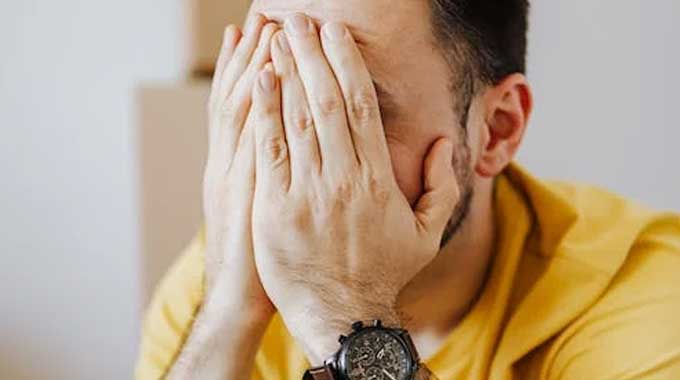Marijuana Withdrawal and Detox

Marijuana, also known as cannabis, is one of the most used psychoactive substances in the world. However, repeated marijuana use comes with a real risk of physical dependence.
Dependence and withdrawal symptoms can act as a barrier to quitting marijuana and enjoying a healthier, more productive lifestyle. However, medical detox can support you through the process safely and as comfortably as possible, so you are ready to reclaim your life.
This blog offers more information about marijuana withdrawal and detox and the science that lies behind it.

What Is Marijuana?
Marijuana is a leafy-green substance that you can smoke or ingest. People use marijuana both medically and recreationally. Marijuana contains over 100 psychoactive chemicals known as cannabinoids, including delta-9-tetrahydrocannabinol (THC), the primary chemical responsible for marijuana’s intoxicating effects.
What Are the Dangers of Marijuana Use?
Using marijuana comes with several short-term and long-term health risks – including withdrawal symptoms. These may make smoking or ingesting marijuana dangerous, especially with repeated use. As many as 9% of users may be dependent on the substance and begin to experience marijuana cravings.
Short-Term Health Risks
Limited evidence suggests that the chance of having a heart attack within the first hour of smoking marijuana could be five times the normal risk. Your heart rate may also increase by 20 to 50 beats per minute. It might also lead to orthostatic hypotension, where you experience a head rush standing up, potentially leading to fainting or falls.
Research surrounding the short-term health effects of marijuana is lacking, and scientists have not reached many clear conclusions about its dangers. However, with the proliferation of medical marijuana, this research is of increasing importance.
Long-Term Health Risks
Regularly smoking marijuana comes with the risk of lung problems, including large airway inflammation and lung hyperinflation. It is still unclear whether marijuana leads to lung cancer, however, studies have shown that marijuana smoke contains carcinogenic chemicals.
The scientific community also lacks consensus around the mental health risks of marijuana. While some studies have found that marijuana use is linked with an increased risk of developing psychiatric disorders such as anxiety, depression, or psychosis, it is often difficult to determine the causal factor in the relationship. The strongest evidence to date suggests that smoking marijuana may increase the chance of developing psychosis among people genetically prone to the condition.
What Is Cannabis Dependence?
Cannabis dependence happens when you repeatedly use cannabis over time. Your body gets used to the presence of the substance and begins to adjust its functions in response. You start to need more and more cannabis to experience the same effects and become dependent on the drug to feel normal. If you then stop using the substance, you experience a series of uncomfortable withdrawal symptoms as your body readjusts.
The Diagnostic and Statistical Manual of Mental Disorders (DSM-5) recognizes cannabis dependence as an aspect of cannabis use disorder. According to the 2020 National Survey on Drug Use and Health, an estimated 5.1% of adults aged 12 or older had a cannabis use disorder in the past year.
What Are The Neurological Mechanisms Behind Marijuana Dependence?
Our brains are made up of many different regions that regulate important functions, such as memory, learning, emotions, and movement. Brain cells in these regions communicate with one another (and other cells in the body) through electric and chemical signals.
Brain cells send chemical signals by emitting chemical messengers known as neurotransmitters. There are many different types of neurotransmitters, including dopamine, endorphins (natural opioids), and endogenous cannabinoids (made by your body). Once released, endogenous cannabinoids bind to and activate cannabinoid receptors on cell membranes in various places in the brain and central nervous system, affecting mental and physical functions such as sense perception, memory, and reaction times.
When you use marijuana, exogenous cannabinoid molecules such as THC (the primary active component of marijuana) interact with the brain’s natural cannabinoid system. They inhibit the action of other important neurotransmitters such as GABA and glutamate. Over time, chronic cannabis use leads to the desensitization of receptor function and the downregulation of cannabinoid receptors.
These changes and adaptations in the cannabinoid system mean that if you suddenly stop using cannabis, you will experience changes in brain functions until your body readjusts. This manifests as a series of withdrawal symptoms.
What Are Marijuana Withdrawal Symptoms?
Marijuana withdrawal looks different for each individual. The symptoms you experience, the length of withdrawal, and the severity of symptoms depend on a variety of factors. These include:
- your history of drug abuse, including how long you have been using cannabis and the dose you take
- your metabolism
- any co-occurring mental or physical health conditions
- the use of other substances
A recent large-scale study by JAMA psychology found that among regular or dependent users of marijuana, 47% experienced marijuana withdrawal symptoms when they stopped using the substance. Cannabis withdrawal syndrome can involve both psychological and physical symptoms.
Physical symptoms of cannabis withdrawal include:
- disturbed sleep
- gastrointestinal issues
- abdominal pain
- headaches
- sweating
Psychological symptoms include:
- anxiety
- irritability
- depressed mood
- restlessness
- decreased appetite
- mood swings
- marijuana cravings
People who have used cannabis for less time, less frequently, or in low doses may only experience mild symptoms, while those who have a history of heavy or prolonged use are likely to experience more severe withdrawal symptoms.
While cannabis withdrawal can be uncomfortable, professional medical support can help you to complete the process safely and effectively manage physical and psychological symptoms. Doctors can prescribe medication and design individualized detox plans that taper off marijuana use to minimize the severity of withdrawal.
What Is the Marijuana Withdrawal Timeline?
For most people, cannabis withdrawal symptoms begin within a week of the last use and resolve within a few weeks. Some cannabis users may experience post-acute withdrawal symptoms (PAWS) for months or even years after they quit marijuana. PAWS are usually mild and may resemble the symptoms of mood disorders, such as anxiety or depression.

How Do Marijuana Withdrawal and Detox Work?
What Is Medical Detox?
A medical detox, or medically-assisted detox, is when you withdraw from a substance under the supervision of a team of medical professionals. Licensed medics provide a personalized detox plan and support you to manage uncomfortable symptoms and cravings. They ensure your safety at all times and treat any medical complications, prescribing medication if necessary.
Medical detox ensures that you manage marijuana withdrawal syndrome safely and as comfortably as possible. If you have developed a marijuana addiction, it helps you get in the right mindset for the remainder of the treatment process, supporting your mental and physical health so you’re ready to engage in your recovery program.
Inpatient and Outpatient Detox
There are two types of marijuana detox: inpatient and outpatient.
During an inpatient detox, you stay in a specialist detox facility for the duration of the withdrawal process. A team of professionals is by your side 24/7 to treat marijuana withdrawal symptoms and cravings and cater to your every need. Inpatient detox offers the most secure and comfortable experience of withdrawal.
During an outpatient detox, you continue to live at home, but regularly see a doctor for check-ups and the prescription of medication if necessary. If severe symptoms arise, they may move you to a hospital or inpatient facility.
Outpatient detox is usually cheaper than inpatient detox and you may be able to continue to fulfill some responsibilities during the withdrawal phase. While the Substance Abuse and Mental Health Services Administration recommends that outpatient detox may be suitable for many people withdrawing from marijuana, certain individuals may require an inpatient detox, such as those with co-occurring mental health conditions or unstable home environments. You should always seek the guidance of a mental health professional before beginning the withdrawal process.
Treating Cannabis Withdrawal
While there are not currently any medications labeled by the Federal Drug Administration (FDA) for marijuana withdrawal, several substances may help to treat marijuana withdrawal and alleviate symptoms. Managing withdrawal is important to make it less likely that marijuana users will turn back to drug abuse.
The first group of medications that may help treat cannabis withdrawal interact with the cannabinoid system in the brain, systematically alleviating symptoms and reducing cravings. CB-agonists such as rimonabant bind to cannabinoid receptors, mimicking the action of both endogenous cannabinoids and THC. Studies have found that rimonabant can reduce withdrawal symptoms in the first week of the withdrawal process.
The second group of medications aims to treat individual marijuana withdrawal symptoms, rather than targeting the system as a whole. These include:
- gabapentin for anxiety
- zolpidem for the sleep disturbance
- buspirone for irritability
Many of these medications come with their side-effects and may worsen withdrawal for some people. You can work with your doctor to assess which ones are suitable for you, closely monitoring your progress and any side effects that develop.
What Is Cannabis Addiction?
Cannabis users who have developed a cannabis dependence may also have become addicted to the substance. While addiction and dependence are both symptoms of a substance use disorder, they are two distinct conditions.
While dependence refers to the physical adaptions of the body in response to chemical imbalances caused by substance use, addiction is a psychological and behavioral phenomenon characterized by compulsive drug-seeking behavior.
Some signs and symptoms of marijuana addiction include:
- continuing to take cannabis despite any negative consequences
- seeking and using cannabis becoming the priority in your daily life
- neglecting home or work responsibilities due to cannabis use
- losing interest in activities you used to enjoy
- lying or acting secretively to hide cannabis use
- social isolation
- financial difficulties
- strained relationships with friends and family members
Living with addiction can be tough, and most people can’t overcome addictive behavior by themselves. However, effective addiction treatment can support anyone to recover from substance abuse and enjoy a productive, sober life.
How Does Marijuana Addiction Develop?
All addictive substances share common effects on the brain’s reward pathways. Our reward pathways are an important and natural part of how the brain works, encouraging us to repeat activities that help us to survive.
One of the most important reward pathways is the dopaminergic pathway. When we engage in life-preserving activities such as eating or fitness training, our bodies release a small amount of the chemical dopamine. This sends a signal that the activity is good, altering neuronal connectivity along the dopaminergic pathway and making it more likely that we will do the activity again.
While there is a long-standing debate over whether marijuana is an addictive substance, evidence suggests that the drug may interact with our dopaminergic system, causing physical changes along the reward pathways that reinforce drug-seeking behavior. Unfortunately, as the National Institute on Drug Abuse explains, data from studies on marijuana addiction is largely inconclusive, partly because dependence is often used as a proxy for addiction, even though they are distinct conditions.
Marijuana Addiction Treatment
If you’re living with substance addiction, it can be hard to see a way out. However, decades of scientific research has to lead to the development of a variety of evidence-based treatment approaches proven to help individuals overcome addictive behavior and maintain sobriety.
Effective addiction treatment programs are individualized to suit each person’s unique needs. Treatment options address the underlying causes of addiction, promoting long-lasting and meaningful change. Dual diagnosis programs treat co-occurring mental health disorders such as anxiety or depression alongside substance abuse, helping to prevent symptoms of mental illness from causing someone to turn back to drug abuse at a later stage.
Marijuana addiction treatment programs usually combine a variety of options, including:
- Cognitive-behavioral therapy
- Group programming
- Support groups
- Family therapy
- Experiential therapy
- Life skills development
- Yoga and meditation
- Dual diagnosis
- Medication-assisted treatment
Recovery from addiction is a long process that requires dedication and support. Most recovery programs offer comprehensive aftercare to guide you through the next stages of recovery, connecting you with local support groups and providing resources to help you face any challenges you come across.

Addiction Treatment and Detox and Brookdale
Brookdale is a premium rehabilitation center in the heart of the Pocono Mountains, Pennsylvania. Our one-of-a-kind facilities overlook a private lake, with over 100 acres of land to relax and inspire you as you begin your recovery journey. We balance luxury with comfort and familiarity, offering an environment where you can focus, introspect, and grow.
Our exceptional programs combine top-tier clinical support with compassionate care in individualized treatment programs that suit each client’s needs. Our personalized approach ensures you have everything you need to achieve a vibrant life of sobriety.
If you or a loved one is struggling with substance abuse, contact us today. There’s no other place like Brookdale.

